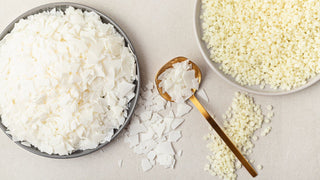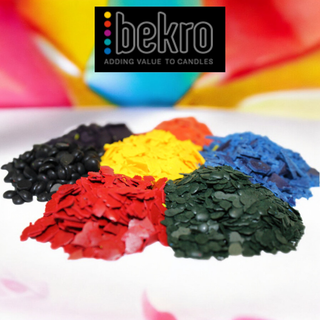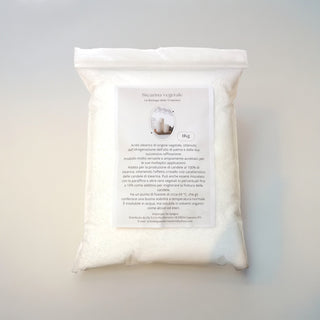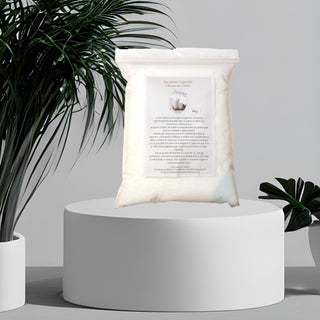Stearic acid is a long-chain saturated fatty acid found in many vegetable fats and oils. It is one of the most common fatty acids and is widely used in various industries for its emulsifying, stabilizing, thickening and hardening properties.
At room temperature, stearic acid appears as a white or yellowish solid with a waxy consistency. It has a melting point of approximately 69°C, which gives it good stability at normal temperatures. It is insoluble in water, but soluble in organic solvents such as alcohols and ethers.
Stearic acid is found in several natural sources, such as palm oil, coconut oil, and olive oil.
But it can also be chemically synthesized from palmitic acid, another saturated fatty acid.
The various properties and characteristics of stearic acid are exploited in many different industries:
Cosmetics: It is used in the production of creams, lotions, soaps, skin and hair care products. It acts as an emulsifier, stabilizer and thickener which improves the consistency of the products.
Pharmaceutical: It is used in the production of drugs, ointments and creams. In the latter it acts as a hardening agent, helping to give shape and stability.
Plastics and waxes : Acts as a lubricating and hardening agent, improving the sliding and extraction properties of the materials from the moulds.
Suitable for the production of 100% stearin candles, obtaining the crystal effect so characteristic of stearin candles. It can also be mixed with paraffin and other vegetable waxes in percentages up to 10% as an additive to improve the finish of candles. It will be your ally in candle production, facilitating the extraction of the most complex candles from the molds and giving greater stability to vegetable waxes in hot periods.
Textile: Facilitates the processing of fabrics by acting as a lubricant. Furthermore, it increases the softness and resistance of the fibers.
- Unit price
- / per
I vostri dati sono protetti e al sicuro con noi.
Adding product to your cart
Potrebbe piacerti
Stearic acid is a long-chain saturated fatty acid found in many vegetable fats and oils. It is one of the most common fatty acids and is widely used in various industries for its emulsifying, stabilizing, thickening and hardening properties.
At room temperature, stearic acid appears as a white or yellowish solid with a waxy consistency. It has a melting point of approximately 69°C, which gives it good stability at normal temperatures. It is insoluble in water, but soluble in organic solvents such as alcohols and ethers.
Stearic acid is found in several natural sources, such as palm oil, coconut oil, and olive oil.
But it can also be chemically synthesized from palmitic acid, another saturated fatty acid.
The various properties and characteristics of stearic acid are exploited in many different industries:
Cosmetics: It is used in the production of creams, lotions, soaps, skin and hair care products. It acts as an emulsifier, stabilizer and thickener which improves the consistency of the products.
Pharmaceutical: It is used in the production of drugs, ointments and creams. In the latter it acts as a hardening agent, helping to give shape and stability.
Plastics and waxes : Acts as a lubricating and hardening agent, improving the sliding and extraction properties of the materials from the moulds.
Suitable for the production of 100% stearin candles, obtaining the crystal effect so characteristic of stearin candles. It can also be mixed with paraffin and other vegetable waxes in percentages up to 10% as an additive to improve the finish of candles. It will be your ally in candle production, facilitating the extraction of the most complex candles from the molds and giving greater stability to vegetable waxes in hot periods.
Textile: Facilitates the processing of fabrics by acting as a lubricant. Furthermore, it increases the softness and resistance of the fibers.











